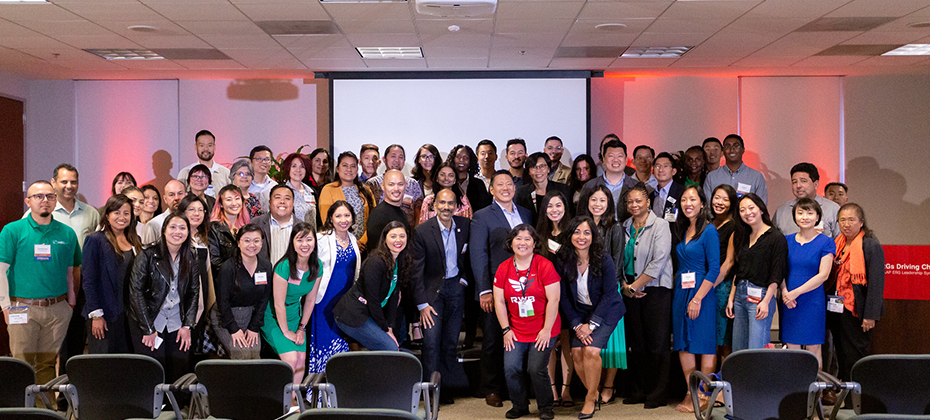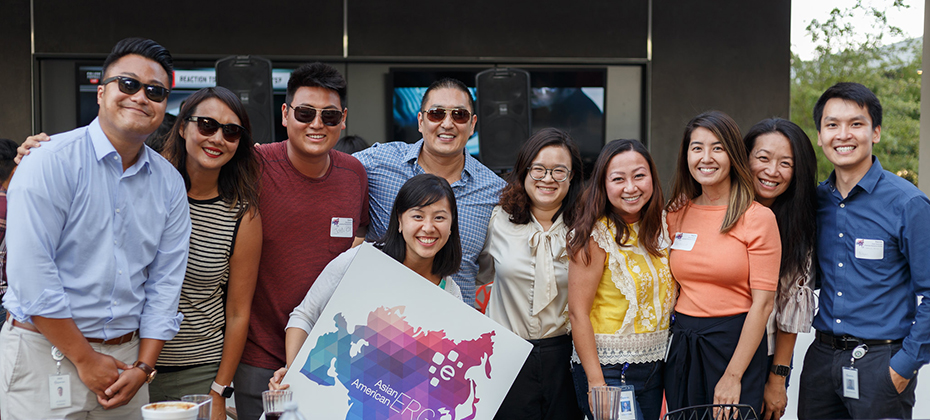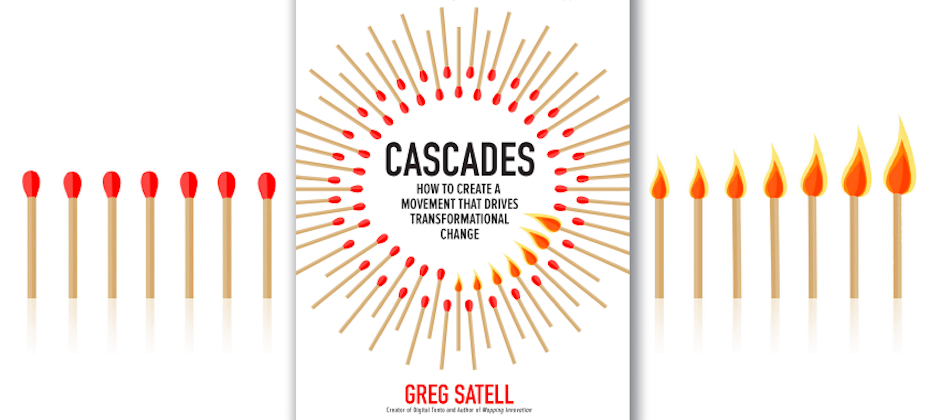NA – North America
News about Experian North America:

I was born and raised in Germany and had the privilege of moving to the U.S. for my undergraduate degree. When I started school, my parents made a deal with me that they would pay one-third of my tuition. I got a job at the campus library to pay another third but still was short by a third. To cover the gap, I decided to try my luck as an entrepreneur. Specifically, the dollar was very strong due to which it seemed feasible to buy a German luxury car in my native Germany, refurbish it to U.S. specs, drive it for a little while and still turn a healthy profit. In order to purchase my first car, I needed a loan. However, like most new immigrants, I was credit invisible. Meaning, the credit history I had in Germany did not come with me to the U.S. Because of this, I was forced to rely on alternative lending as traditional lenders did not have enough information to assess if I was a good credit risk. With no other options, I turned to an alternative lender and secured a high interest loan. Thankfully, I was able to maintain my payments and paid off the loan in fifteen months, that is, when I sold the car. At this time, obtaining credit from an alternative lender was not factored into a traditional credit history. This meant that even though I repaid the loan responsibly, it did not help build my U.S. credit file or my credit score when I was ready to do it all again. This experience is what fuels my passion to maintain Experian’s position as the leader in alternative credit data and improve consumer financial health. We know that a consumer’s traditional lending history for things like credit cards, personal loans, auto loans, and mortgages are a proven method to assess creditworthiness, but sometimes there isn't enough data to score all consumers. Many consumers who are excluded from the traditional credit ecosystem are in fact creditworthy, but due to an international move, divorce or simply a lack of experience with credit, they’re unscorable and or invisible to lenders. Whether you’re new to the country or just getting your financial feet wet, starting to build your credit history can be difficult. If we indeed can play a role in helping consumers live the American dream, I believe it’s our responsibility to do that. The good news is the lending market is in a pivotal state of change and I believe it’s for the better. At Experian, we can now use the responsible payments consumers make to alternative lenders as well as their rental payments, professional licensures, utility and cell phone payments, and, of course, their traditional credit history to help consumers gain access to the financial services they need. We recently announced Experian Lift™ - a new suite of credit score products that combines exclusive traditional credit, alternative credit and trended data assets to create a more holistic picture of consumer creditworthiness. We believe Experian Lift may improve access to credit for more than 40 million credit invisibles. It’s another step in our commitment to helping improve the financial health of consumers everywhere. As you may know, earlier this year, Experian launched Experian Boost – a free and first-of-its-kind financial tool that empowers consumers to add positive telecom and utility payment history directly into their Experian credit file for an opportunity to instantly increase their FICO Score. Through Experian Boost, we’re empowering consumers to play an active role in building their credit histories. And, with Experian Lift, we’re empowering lenders to identify consumers who may otherwise be excluded from the traditional credit ecosystem. Thin file or subprime consumers have typically been viewed as a fringe and stigmatized segment of society. I can speak from personal experience and say this is not the case. With more than 100 million consumers lacking access to fair and affordable credit, we know this is mainstream America and we need to continue to provide solutions. As the consumer’s bureau, our goal is to help consumers and maintain access to credit. We’re proud of our latest innovations and will continue to identify new means to help consumers gain access to the financial services they need.

At Experian we’re committed to creating a culture of continuous innovation, from the way we work to the solutions we create. This commitment has helped us create a workplace where our teams across the world have a desire to help change the lives of millions for the better. Justin Hastings, former Chief Human Resources Officer for Experian North America, recently wrote an article for the Forbes Human Resources Council which highlights the importance of creating an inclusive environment in the workplace -- and demonstrates how innovation, developing new products and services, and providing value are all crucial to a companies’ success. The article, “Deliver Innovation By Embracing Inclusion,” explores what it means to build a culture of innovation, and how to ensure employees feel comfortable bringing their different backgrounds and ideas to their role every day. This is the type of innovative culture we’re building at Experian, which celebrates these differences and works to make employees feel valued and empowered to be innovative and productive. Another concept Justin discusses in this article is “innovating to grow.” It’s important to make employees feel connected to their organization and involved in the creation of new products and services. This has a tremendous positive impact with employees providing valuable feedback, and also creating advocacy among team members. For example when developing Experian Boost, which has helped millions of people raise their credit scores, we first beta-tested and shared the innovation internally and were able to garner valuable feedback and support from employees. As a result, we’ve seen tremendous success since the launch of Experian Boost earlier this year. At Experian we truly believe that inclusion is the key to creating a culture of innovation. You can read the full article here.

As part of Experian’s commitment to the value of Employee Resource Groups (ERG), we recently hosted the National Association of Asian American Professionals (NAAAP) ERG Leadership Symposium, ERGs Driving Change at our Costa Mesa headquarters. ERGs are a proven strategy for organizations to advance a diverse and inclusive company culture. At Experian, we believe the culture of inclusion also cultivates and advances innovation with the added diversity perspective that strengthens the community of professionals and ideas within the company. We were proud to host the 13th ERG one-day training program that was organized by the NAAAP to help companies and employees advance their ERG experience and learn how ERGs are change agents to enhance productivity and grow professional networks in the corporate setting. Speakers represented companies leading their industry, such as Bank of the West, Macy’s, Anheuser-Busch, Google, Facebook, UPS, Northrop Grumman, Boston Scientific, and many more, including Experian. The symposium this year featured numerous ERG thought leaders sharing their insights across a variety of sessions and panels, including; Best Practices in Demonstrating Value, Creating Connections through ERG Leadership, What’s Next Action Plans for Your ERG, among others. Caption: Hiq Lee, President, Business Information Services for Experian, shared insights as a panelist for The Crucial Executive Role in Driving Change session. She was joined by Judy Ting, SVP, Pacific Rim Region Manager, Bank of the West, and DeAnne Aussem, Managing Director & Founder of U.S. Leadership Coaching Center of Excellence, PricewaterhouseCoopers, LLC. The panel was moderated by Farzana Nayani, NAAAP ERG Architect. All speakers provided valuable takeaways for the professionals in attendance to motivate their organizations to positively impact their company with the diversity amongst its workforce and implement strategies to leverage the power of inclusion. Specifically, the hundred-plus attendees learned more about how Employee Resource Groups and Business Resource Groups are change agents for diversity, inclusion, engagement, productivity, and connection-building within organizational settings. Justin Hastings, former Chief Human Resources Officer for Experian North America, welcomed the ERG Leadership Symposium attendees with his introductory remarks, as he shared Experian’s perspective on inclusion leading to innovation. Therefore, we asked him some questions to share his insights with us on Experian’s ERGs. 1. How is Experian creating a better tomorrow? Hastings: The consumer is at the heart of everything we do. Our product innovation is geared towards giving consumers more control over how their data can enrich their lives. Experian Boost is a perfect example of this coming to life. Inclusion underpins our ability to innovate. The more we encourage a culture where everyone’s creativity is valued, the more we are able to innovate for consumers. Our ERGs play an important role in promoting diversity, and creating an environment where all our Experian people can bring their whole selves to work and be creative. 2. What role does The Power of YOU have in Employee Resource Groups? Hastings: We created a workplace environment where everyone is comfortable bringing their whole self to work, regardless of differences or backgrounds. We call this The Power of YOU, which creates an environment for employees to be their true selves. We advance our company culture by not only respecting the differences amongst Experian colleagues, but actively celebrating them with and through our ERGs. 3. What impact does the Employee Resource Groups have on Experian? Hastings: At Experian, inclusion is vital to the success of the company. Our ERGs provide us with a platform to be a more innovative business. Our ERGs now have around 1,000 employees actively involved across the eight current groups. They have helped create greater understanding of different cultures that are represented in our company, and they have also underpinned our recruiting efforts across diverse talent pools. This has helped us to keep evolving our employee base to be increasingly representative of the communities in which we operate, and the consumers we ultimately serve. Learn more about Experian’s Employee Resource Groups by visiting: https://www.experian.com/corporate/power-of-you.html Learn more about the National Association of Asian American Professionals (NAAAP) by visiting: https://www.naaap.org/ All photos taken by Nhan T. Nguyen.

For the past several years, Experian has been on a journey to help drive financial inclusion for millions of people around the world. This has required significant changes in how we operate, who we partner with, and the products and solutions we offer —and with those changes comes a renewed sense of purpose. What we do and the actions we take have the potential to improve lives. We are actively seeking out unresolved problems and creating products and technologies that will help transform the way businesses operate and consumers thrive in today’s society. But we know we can’t do it alone. That’s why over the last year, we have built out an entire team of account executives and other support staff that are fully dedicated to developing and supporting partnerships with leading fintech companies. We’ve made significant strides that will help us pave the way for the next generation of lending, while improving the financial health of more people around the world. Earlier this week, I attended the FinovateSpring conference in San Francisco to speak with fintechs and financial institutions about ways to put financial health at the center of an organization’s plans to build trust, reach new customers and ultimately grow business. We are developing platforms that are designed to play to the strengths of fintechs and disrupt the industry. In the past, we have looked at unresolved problems and asked ‘why?’ Today, with our fintech partners, we look at potential solutions to these unresolved challenges and say, ‘why not.’ As part of our concentration on fintech, Experian has made significant investments in alternative data, such as the game-changing Experian Boost platform, which was launched just two months ago and is already reshaping the way consumers gain access to credit. Since we launched Experian Boost, consumers across America have instantly increased their credit score by sharing their bill payment history for things like utilities, mobile phones and cable TV payments – payments which had never been factored into a credit score before. And, yes, this platform came to fruition as a result of a fintech partnership. We have partnered with fintechs in other powerful ways, too. Our new Ascend Analytical Sandbox – a first-of-its-kind data and analytics platform - gives companies instant access to more than 17 years of depersonalized credit data on more than 220 million U.S. consumers. This creates better opportunities for consumers by allowing our clients to provide more tailored solutions. It’s a great example of the power of analytics and we’re very proud of it. During our time at Finovate, we were able to engage in meaningful conversations with fintech leaders who were united in our goal of helping more consumers access the financial services they need. We’re more inspired than ever before to continue to build and explore strategic partnerships that will ultimately improve the lives of American consumers.

As part of the company’s commitment to diversity and inclusion, Experian is celebrating Asian Pacific American Heritage Month through May. This article is by Dacy Yee, VP of Marketing and Customer Relationship Management for Experian Consumer Services and executive co-sponsor for Experian’s Asian American Employee Resource Group (ERG). My parents’ story is not unlike any other immigrant story. At 20 years old, they came to the United States from Hong Kong with nothing but a dream for more opportunity and a better life for their family. Their drive and resilience empowered me from a young age. I got my hustle from my dad; he is the hardest-working person I know. Throughout my childhood, he juggled multiple jobs, from working in Chinese restaurants and bagging groceries to becoming a mechanic. He worked his way from mechanic to owner of a gas and service station, often spending early mornings and late evenings opening and closing the shop. I got my toughness from my mom; she always pushed me to be better by making me believe that I was capable, strong and resilient, and by telling me that I could achieve anything I wanted to in life. My parents showed me what courage and determination meant by leaving the familiar in their home country to move here and maneuver a new, unfamiliar culture. They empowered me to work hard and take risks—to always think bigger. Asian Americans have a unique place in history; from the Chinese immigrants working on the railroad in the 1880s to the Japanese WWII internment camps of the 1940s, there’s something to be said about the Asian American story in this country that has only recently been explored in pop culture and entertainment. There’s the quiet, hard work ethic and driven mentality from my parents’ generation that worked so well in certain countries, but a steady drumbeat of wanting to stand out in future generations after that. This has profound implications for professional environments. The generalizations of the silent model minority have been disputed in recent years. Even more so, there’s much to be discussed as to how we carry our past generational habits into the future and how that shapes who we become. The lessons my parents taught me sometimes translate differently and result in the culmination of stereotypes I’ve tried to avoid throughout my career. Putting my head down and working hard might suddenly mean I’m passive. Thinking twice about challenging authority might translate to being soft-spoken or submissive. As an Asian American professional woman, I’m faced with minute-to-minute decisions of when to speak up, when to fight my battles and when to simmer down. There have been studies showing that there is a real “bamboo” ceiling for Asian Americans trying to reach the C-suite level. In fact, Asian Americans are currently the racial group least likely to be promoted to management positions in the U.S., according to a study in the Harvard Business Review. The question is: how do we break through that ceiling? As a company rooted and driven by data, we are constantly looking at numbers in everything we do. This is why we’re hosting a speaker to walk through his findings about what builds and creates this “bamboo” ceiling and how it affects Asian Americans in the workplace. We need to speak up and share our struggles with each other; as part of Asian Pacific American Heritage Month, we’re hosting a panel featuring our own Asian American leaders and professionals to talk about this very issue. To each other, to their colleagues, to their managers and to the larger Experian community. Finally, we’re going to chart the path forward and lead by example. As members of the Asian American ERG at Experian, we’re going to host more skill-building workshops, have open and candid conversations, and keep each other accountable to our stretch goals and ultimately our professional aspirations. As we celebrate Asian Pacific American Heritage Month, there will be an ongoing dialogue of what empowerment means to us in the workplace. Ultimately, regardless of where you come from and how you identify yourself, the resounding lesson is of empowerment; standing up for what you’re passionate about and leading the way for others who will be following in your path.

Technology revolutionizes the way businesses operate, but implementing change within a company is often challenging. Company-wide support is vital to successfully undergo a transformation. At Experian, in 2015, we underwent the task of moving from a traditional computing architecture to the cloud. This is a monumental transformation with our massive digital infrastructure and significant global reach, but it enables us to provide customers with real-time access to data. This journey is featured in the new book, Cascades: How to Create a Movement that Drives Transformational Change, by Greg Satell. Last year Satell’s first book shone a light on Experian’s innovation story. In his latest book he talks about the power of cascades - small groups, united with a common purpose - to drive transformational change within businesses. He gives examples of how some companies succeed, while others fail. Satell uses Experian as a case study and highlights how changes to our culture, organizational structure and skills is allowing us to adopt new technologies quicker, in better collaboration with our customers, to get cutting-edge, innovative products to market faster. At Experian, we believe in the culture of inclusion, which brings a culture of innovation with the added diversity perspective that empowers our people to continue to evolve and create valuable additions to the company during this transformation. Our philosophy is about advancing a culture that not only respects differences, but also actively celebrates them. In Cascades, Satell writes about the idea of small groups, loosely connected, but united by a common purpose. We asked the author for his thoughts about Experian’s technology journey, which he refers to as our digital transformation, and why he’s used Experian as a success story in his book. Q. What are your thoughts about Experian’s digital transformation so far? Satell: What attracted me to the Experian story was how closely it tracked with so many of the social and political movements I researched for my book. Senior leadership at Experian didn’t just try to push its digital transformation through. Rather, they identified those who were already enthusiastic and empowered them to bring others into the fold and they, in turn, could bring others in. That's how you create a cascade that leads to transformational change. Q. What has impressed you the most about Experian’s digital transformation, from both technology and human perspectives? Satell: What I found most impressive is that Experian is able to break free from decades of legacy and build a new future for itself. That's a very hard thing to do. You have all this infrastructure that served the business so well for so long. I mean you're talking about decades of investment. Still, the company leadership was able to step back and say, ‘That's our past and we're proud of it, but it's not our future’, and move forward from there. Q. Have you seen any examples of how our digital transformation is driving innovation within Experian? Satell: Well I think it has driven a lot. Things like Experian’s Analytical Sandbox, the Ascend platform and much of the current work around Artificial Intelligence (AI) wouldn't be possible without moving to more of a cloud infrastructure.

Inclusion is at the heart of everything we do, and we’ve made it a priority to embrace the diversity that makes up the Experian family. This is why we’re especially proud to release our 2018 The Power of You Inclusion & Diversity Annual Report, highlighting the strides we’ve made to celebrate our diverse work force and create an inclusive company culture. "We believe that embracing a truly inclusive culture, where everyone has a real sense of belonging, is critical to building a diverse workforce and fostering innovation," says Craig Boundy, former chief executive officer of Experian North America. "We don't just encourage inclusion at Experian, we celebrate it." The Power You initiative was created to recognize ways we can create a more supportive work environment and provide greater transparency into our commitment towards diversity and inclusion. We’ve instated progressive policies and programs, such as flexible working, paid parental leave and Experian clubs, to help foster support, empowerment and employee pride about working for Experian. Here are some of the highlights from the report: 89 percent of employees across North America agree that creating a diverse and inclusive work environment is at the forefront of Experian's values More than 900 employees joined our 8 Employee Resource Groups (ERGs) From 2017 to 2018, the percentage of women hired into executive positions increased from 31% to 38% Nearly half of our job applicants were non-white, a 10% increase from 2017 Volunteer Time Off (VTO) was increased from one day to two days Experian North America was honored with a North America Great Place to Work certification and regional Top Workplaces awards From the events organized by our Employee Resource Groups (ERGs) to the support provided by our Experian Hardship Fund, The Power of You initiative is exemplified by the work and dedication our employees have invested to help in our mission to create an inclusive workplace. "Creating a better tomorrow starts within the company, and that's why we're committed to diversity and inclusion," adds Justin Hastings, former chief human resources officer of Experian North America. "We search the globe for the very best people so we can innovate and meet the needs of our increasingly diverse clients. Drawing on this collective strength is what truly makes us a top workplace." Our dedication to creating a more inclusive and supportive workplace has not gone unrecognized. We’ve been honored with a number of high-profile employer awards, including being named the #1 Top Workplace in Orange County by the Orange County Register and one of the World’s Most Innovative Companies for the fifth consecutive year by Forbes Magazine. Innovation starts with creating an inclusive culture and growing a diverse workforce. We are proud of the supportive work culture we’ve created and will continue finding ways we can further build upon the progress we’ve made. A copy of this year's report can be found here. Photos taken by Nhan T. Nguyen.

The Human Rights Campaign (HRC) Foundation has recognized Experian with a 100 percent score on their 2019 Corporate Equality Index (CEI), earning the distinction as one of the “Best Places to Work for LGBTQ Equality”. The CEI is the nation’s premier benchmarking tool in evaluating corporate policies and practices related to LGBTQ workplace equality. We are honored to have received such top marks alongside some of America’s most respectable companies. “Our mission as a company is to create greater financial inclusion for consumers, but inclusion also means creating an open and accepting workplaces where everyone can thrive,” said Craig Boundy, former chief executive officer of Experian North America. “We work hard to make diversity and inclusion a priority in our company culture, and our efforts are showing real results.” We strive to celebrate our company’s diversity by creating an inclusive workplace environment where employees feel supported and appreciated. We’ve launched initiatives and implemented policies that have solidified our commitment to being a strong ally to the LGBTQ community. Our dedication to foster a supportive work culture for our LGBTQ employees is exemplified by such practices as: Our progressive benefit programs, which include transgender services and offer equal coverage to same and different-sex domestic partners and spouses. Our non-discrimination and equal employment policies go beyond federal requirements, ensuring equal treatment regardless of “gender identity” or “sexual orientation.” Our dedication to be inclusive through executive sponsorship and the Power of YOU initiative which facilitates Employee Resource Groups and Clubs. "The top-scoring companies on this year's CEI are not only establishing policies that affirm and include employees here in the United States, they are applying these policies to their global operations and impacting millions of people beyond our shores," said HRC president Chad Griffin. Practicing an inclusive work culture has always been one of our top priorities and being honored by the HRC demonstrates our dedication to that goal. We are proud to support our LQBTQ employees, along with the diverse work force that make up the Experian family. For more information on the 2019 Corporate Equality Index, download the HRC report.

Today marks a notable milestone in our company’s history and for consumers. Today we officially launched Experian Boost, a free tool that, for the first time, will allow millions of consumers to add positive payment history directly into their credit file for an opportunity to instantly increase their credit score. For the past several years, we have been working to develop new products and innovations that will disrupt the credit industry and help improve the financial lives of consumers. This commitment to financial inclusion has defined us and created a real sense of purpose for everyone who works here – and that purpose is realized with the launch of Experian Boost today. There are more than 100 million Americans who don't have access to credit today. A low credit score, due to a thin file or incomplete information, may force these consumers to rely on high interest credit cards and loans. The fact that many of these consumers consistently and responsibly pay cell phone and utility bills on time every month hasn’t seemed to matter. At Experian, we know that’s not right. A good credit score is a gatekeeper to better financial opportunities. We need to develop products and services that make achieving and maintaining a good score easier, not harder. As the consumer’s bureau, we want to ensure that as many people as possible can access and participate in the financial system, and we believe everyone deserves a fair shot at achieving their financial dreams. We have a fundamental mission that is shared by our colleagues around the world: to strive to be a champion for the consumer. With Experian Boost, we're bringing that mission to life and I couldn’t be prouder. Many of our colleagues at Experian worked tirelessly over the last few years to make this day a reality. To everyone who’s played a part, I offer my very heartfelt thanks. It’s truly a great day to be a part of Experian, and we know there will be a lot of great days ahead for all the consumers who will benefit from having their credit score truly reflect who they are. To find out more about the Experian Boost, please visit experian.com/boost.